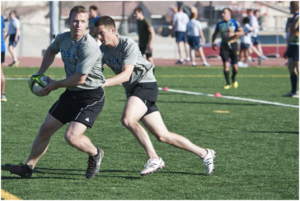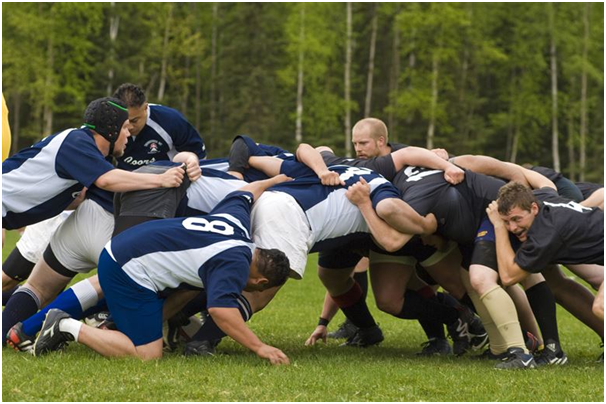Rugby is a wonderful game of skill and tactics. There are many specialist skills given the different positions on the team, though there are also many skills required by every player on the field.

Running
Rugby is a fast-moving game so it follows that players will have to move quickly. They need to be able to run. Drills should cover sprint and distance exercises, acceleration and changing pace and direction, and it is also important to be able to maintain balance. Various running exercises should be incorporated into every training session, including warm-ups.
Passing
As a team sport involving a ball, being able to pass the ball from one player to another is critical. As with running, it is a skill that all players must develop. Speed is often of the essence so practice timed exercise to simulate the speed of a match. Being able to deliver successfully under pressure takes practice.
Decision making
The pressure of a real match is difficult to simulate – practice is the best way to develop these complex skills, and some have a natural affinity for decision-making. That said, it is important for all players to make decisions when the pressure is on and timed exercises on the training ground can help.

Tackling
Tackling is what most non-players associate with rugby, and it does make up a really important part of the game. It can be dangerous if not done correctly and within the laws of the game, so the focus should be on teaching players to execute tackles properly. All players must work on technique weekly.
Support play
No single player will win a game on their own. Anticipating fellow players’ moves and responses will come in time and through working together. Remember to follow up and support teammates through to the next phase.
If you think that coaching is for you, take a look at the advice at England Rugby. And identifying areas for improvement for you and your team is half the battle, following up with rugby drills from companies like Sport Plan https://www.sportplan.net/drills/rugby. These rugby drills are a great asset to rugby coaches as they can help all players improve, whatever their base skill level.
Finally, communication can make or break the success of the team so be sure to include sessions on theory alongside the training.





